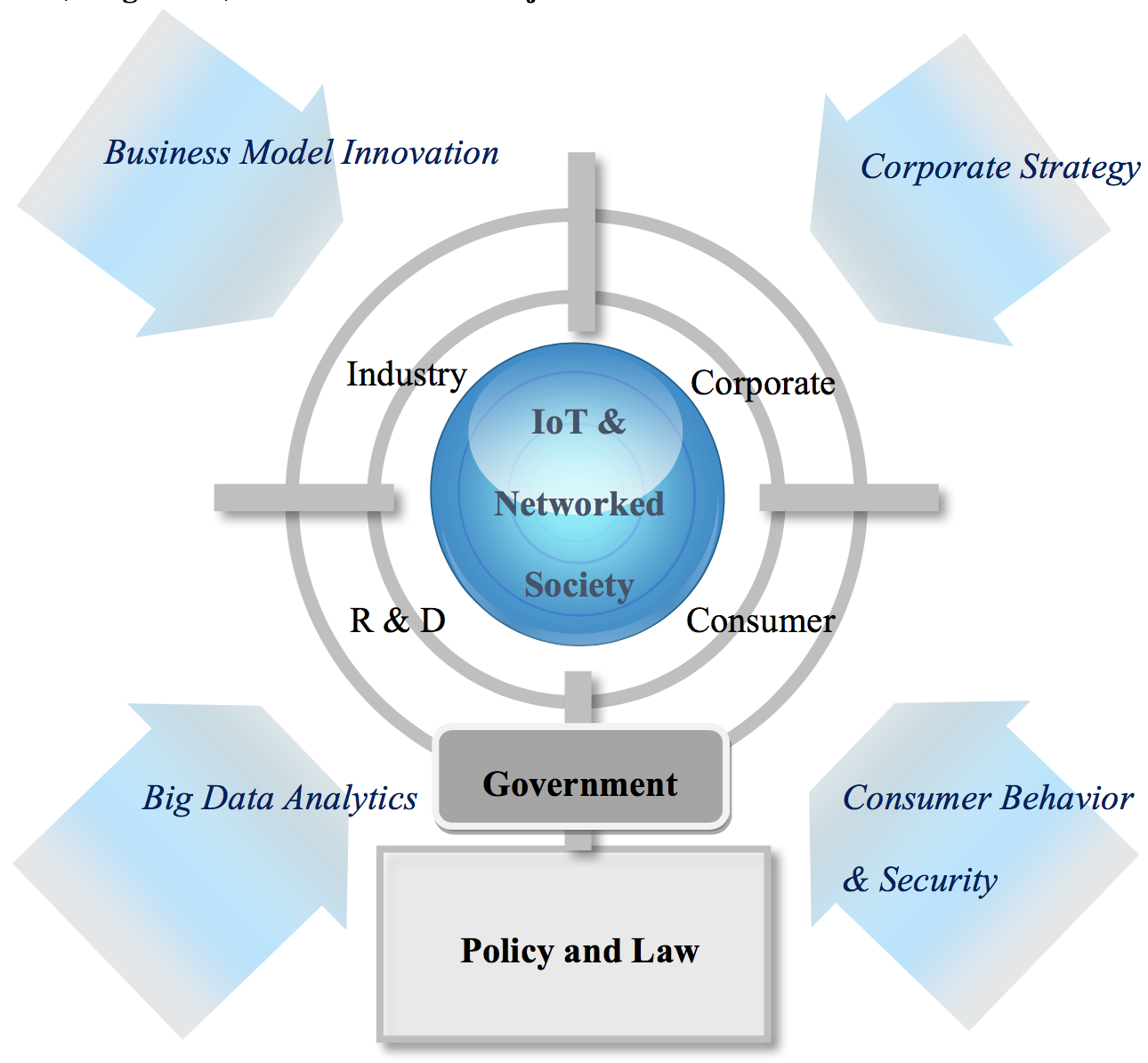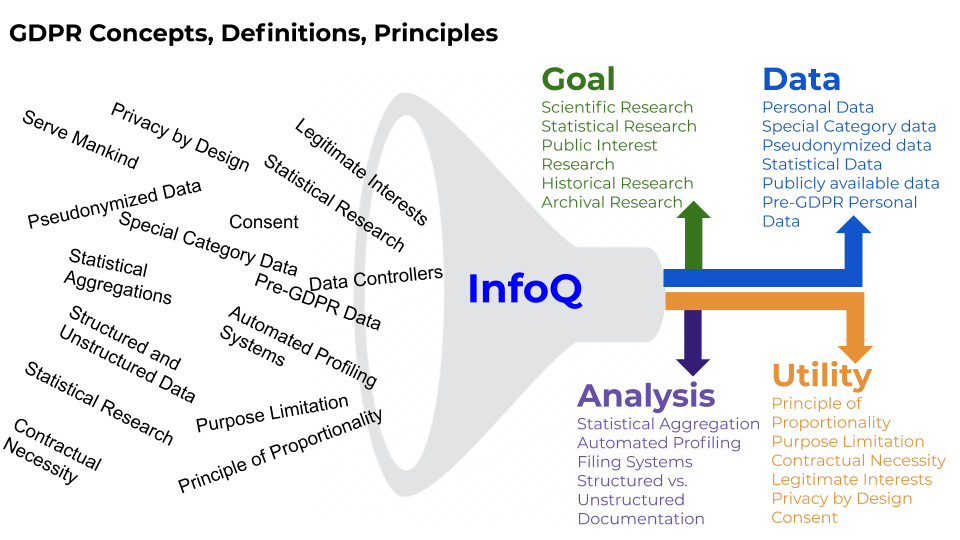The movement toward IoT’s ubiquitous use does not come without risk. Although certain impacts will not be fully understood for some time, we believe that most of the implications can be envisioned now. This project looks at the most profound issues from the aspects of various stakeholders, i.e., corporate, R&D, consumer, and government:
1. IoT Business Model Innovation
As latecomers to technology development, emerging economies such as those in Southeast Asia (SEA) treat the IoT sector as a critical leverage point to accelerate their transition. SEA countries are proving to be the leaders in terms of IoT adoptions around the world. Taiwan’s firms need to develop “localized innovative applications.”
2. IoT Corporate Strategy
In the framing contest of IoT, leading firms should be more aggressive in shaping the formation of IoT industry architecture to their advantage. For entrepreneurs, more emphasis should be put on the selection of industry architectures or frames, if they are to grasp opportunities from their vantage points.
3. Big Data & Analytics
Taiwan startups continue to grow and improve their data collection systems, resulting in more possibilities and opportunities for using analytics. We have been working towards clarifying the potential impact of the GDPR on data scientists, managers, and researchers.
4. Networked Society, Security and Consumer Behavior
Users see IoT devices as intelligent others, the decision-making of which they must also account for. Firms eyeing the IoT space would do well to reimagine user experience and envision their products and services as being composed of assistive devices rather than query-response applications.
5. IoT Policy and Law
The US tends to take a sectoral approach to IoT regulation while the EU prefers an overarching approach to privacy and security, with general regulations that are consistent across industries. We are of the view that it is premature at this stage to adopt an IoT-specific legislation which could pose significant obstacles to IoT development.
The Internet of Things (IoT) is transforming the way we interact, conduct business, and live our lives. Indeed, IoT brings new opportunities, challenges and risks, and the more the IoT challenges exist in institutions, the greater the demand for new business models, behavioral patterns or legal frameworks for its adoption. Over the next decade, the 5G network will be instrumental in spurring further development and scale in IoT. Nearly every piece of the IoT technology we use will be part of an always-connected web of smart sensors and data feedback devices. The high speeds and low latency promised by the 5G network will bring Taiwanese society into a new age of IoT-based smart cities.
That being said, for its full potential to be realized, the necessary infrastructure and policies must be in place. The team members of this project have been collectively exploring and evaluating the benefits and the risks, the perils and the promises, of the IoT and networked society marketplace. This research has been designed to fill a gap by bringing technology management, services science, and legal studies together.

The reality is, the movement toward IoT’s ubiquitous use does not come without risk. Although certain impacts will not be fully understood for some time, we believe most of the implications can be envisioned now. This project looks at the most profound issues from the aspects of various stakeholders, i.e., corporate, R&D, consumer, and government. We have been examining five under-explored dimensions and found that:
1. IoT Business Model Innovation (by Professor Mei-Chih HU)
As latecomers to technology development, emerging economies such as those in Southeast Asia (SEA) treat the IoT sector as a critical leverage point to accelerate their transition. SEA countries are proving to be leaders in terms of IoT adoptions around the world. Taiwan’s firms need to develop “localized innovative applications.”
2. IoT Corporate Strategy (by Professors Pao-Lien CHEN, Chung-Kai LEE)
In the framing contest of IoT, leading firms should be more aggressive in shaping the formation of IoT industry architecture to their advantage. For entrepreneurs, more emphasis should be put on the selection of industry architectures or frames, if they are to grasp opportunities from their vantage points.
3. Big Data & Analytics (by Professor Galit SHMUELI)
Taiwan startups continue to grow and improve their data collection systems, resulting in more possibilities and opportunities for using analytics. We have been working towards clarifying the potential impact of the GDPR on data scientists, managers, and researchers.

4. Networked Society, Security and Consumer Behavior (by Professor Soumya RAY)
Users see IoT devices as intelligent others, the decision-making of which they must also account for. Firms eyeing the IoT space would do well to reimagine user experience and envision their products and services as being composed of assistive devices rather than query-response applications.
5. IoT Policy and Law (by Professor Shin-yi PENG)
This project has coordinated a diversity of views on whether an IoT-specific law or regulation is necessary, to be more specific, whether the current regulatory regimes suffice, and if not, to what extent more state intervention is needed to build public confidence. We found that the US tends to take a sectoral approach to IoT regulation while the EU prefers an overarching approach to privacy and security, with general regulations which are consistent across industries. We are of the view that it is premature at this stage to adopt an IoT-specific legislation which could pose significant obstacles to IoT development.

The policy goal of turning Taiwan into a global base for internet technology, big data and IoT enterprises requires coordinated engagement by all stakeholders—government, the technical community, the private sector and academia—to ensure a forward-looking and balanced policy that fosters innovation while addressing challenges. Future industrial policy requires more collaborative and interdisciplinary solutions, through productive dialogue with scholars and experts in science, technology, humanities and social sciences. To that end, we have been examining in a coherent way the key challenges which Taiwan is now facing in the age of IoT and networked society.








